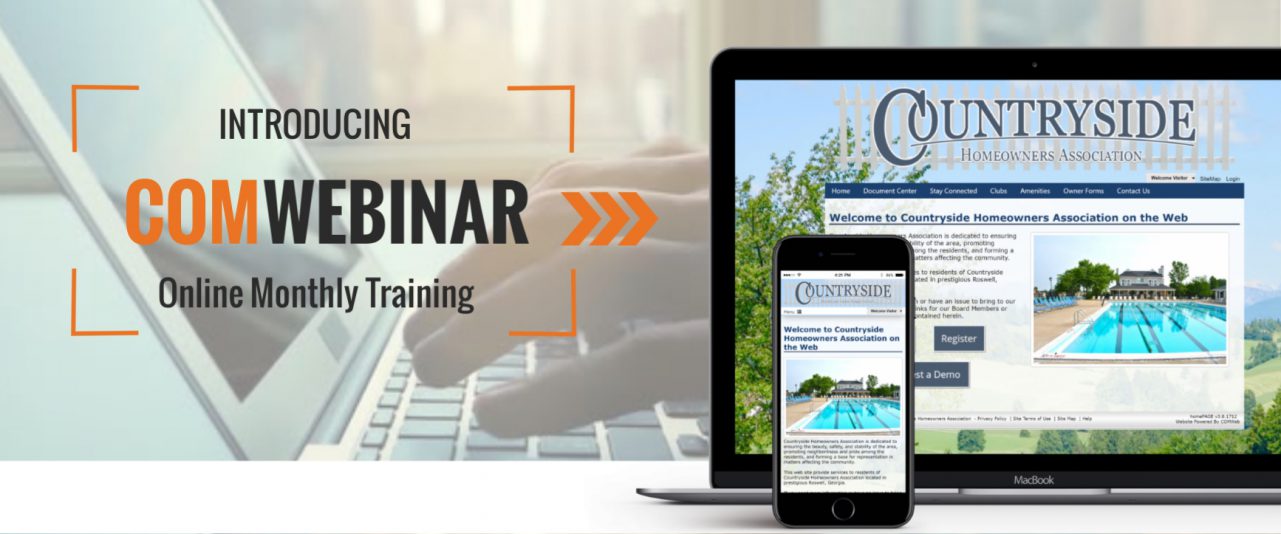Since your HOA is a legally recognized entity, it makes sense that it can come up against legal disputes and lawsuits like any other organization.
And because you and your fellow board members are also responsible for your community’s physical, human, and financial affairs, there’s often extra awareness around HOA liabilities and protections.
Of course, concerns about liabilities make sense. Although your HOA might not be profit-driven, liability and accountability still exist in your association’s connection to physical and financial assets. For this reason, it’s essential that HOAs have the proper legal protections in place. You also want your board members to have a complete understanding of their bylaws and CC&Rs.
Once you have a better understanding of common HOA liabilities, you’ll be able to strengthen your board’s planning process and better prepare for these concerns. And by bookmarking these must-follow best practices for protection, your board will be able to successfully serve all the interests within your community.
A Survey of Frequent HOA Liabilities and Protections
Because HOA disputes and legal difficulties can be diverse, it’s critical to have a complete understanding of what your board might face.
Vendors, Volunteers, and Paid Employees — HOAs can have a mixed workforce of paid or voluntary help. Often, the paid employees are contracted in from outside companies, while the volunteers may be tapped from the community itself. Of course, this personnel is crucial for carrying out various services and maintenance tasks for your HOA. And because of the risks associated with these efforts, you’ll also want to ensure you’re covering and protecting them with insurance policies such as these.
- Directors and Officers Insurance (D&O insurance) – This type of policy covers HOA liabilities related to your individual board of directors and other association staff. This includes any liabilities and fiduciary neglect, wrongful dismissal, or harassment.
- Workers’ Compensation Insurance – For this insurance type, your HOA will be covered in the event of a worker sustaining an injury or trauma while carrying out duties on-site. When you’re using a lawn service, landscaping service, or janitorial service, this insurance coverage is not one to skip over due to the prevalence of worker injury.
- Auto Insurance – You might not initially think of auto insurance for your HOA. But it can cover any damage or costs incurred to vehicles used while on duty. This also helps protect community assets when volunteers use their own cars to transport association goods or to perform HOA duties. Additionally, uninsured motorist coverage can cover HOA liabilities related to staff who may happen to collide with an uninsured driver. And comprehensive auto coverage protects HOA vehicles in the case of theft, vandalism, or damage.
Neighborhood Watch — In many HOAs, boards opt to set up a neighborhood watch detail rather than hire an external security firm to monitor the area. These neighborhood watch schemes can be extraordinarily successful and effective. Still, it is essential to have the proper protection to cover any community members who might be injured or traumatized in the line of duty.
- Commercial General Liability Insurance — For this type of HOA liability, you’ll want to consider a commercial liability policy. With protection like this one, you’ll be able to cover your neighborhood watch members if they sustain injuries or become unable to work due to an incident while on watch. Importantly, it will also cover legal defense, security fees, and any damages a court may issue if a third-party decides to take a watch member to court over an altercation.
Financial Loss — Loss on investment is an HOA liability topic that comes up most with board members. It’s also a common concern for residents due to the high-profile nature of each of the two major kinds of loss. Although they are significantly different, events related to emergencies, on the one hand, and fraud, on the other hand, can cause serious financial distress for an unprepared HOA.
- Disaster and Emergency Insurance – One of the most important protections that any board should have in place is property damage insurance. For these types of HOA liabilities, you’ll be covering the community’s physical assets. Meaning, in the case of a man-made or natural disaster, you have covered on costs related to community buildings or structures and commonplaces. Hurricanes, floods, wildfires, arson, and vandalism are unforeseeable events that Disaster and Emergency Insurance can help HOAs be prepared to handle.
- Fidelity Bond Coverage – Don’t be intimidated by this fancy sounding policy name. Because in reality, this HOA liability is a rather straightforward type of financial loss. And that’s if association revenue is lost or misspent in any way, for example, through fraud. With this protection, you can ensure that officers, directors, and board members are held responsible, and funds can be reimbursed.
An Extra Word About Protecting Against HOA Financial Loss
As well as attaining insurance policies for financial loss, HOAs can introduce accounting best practice policies to prevent foul play. Advisable best practices include:
- Review HOA finances every month to identify any anomalies and ensure that all outgoing money is for a legitimate purpose.
- Schedule regular audits so a third-party inspector can objectively assess the health of your HOAs finances.
- Keep detailed records so the appropriate documentation is available as evidence in the event of a lawsuit or complaint.
- Use specialist HOA management accounting software so no steps are missed, and all data is protected and compiled properly.
Ensure Your Board Understands the HOA Bylaws
One way of avoiding unnecessary legal drama is to ensure that all HOA directors, members, and employees are familiar with your HOA bylaws. These bylaws are typically drawn up at the inception of any HOA and form the foundations of the HOA’s governing documents. Mainly relating to day-to-day operations of the HOA and its board, bylaws lay out the parameters of power and duties within the association. Key areas that these bylaws should cover include:
- HOA election requirements and candidate qualifications
- Board member election frequency and term limits
- HOA officer duties and powers
Familiarize Your Board with Your HOA CC&Rs:
Even more importantly, there are HOA Covenants, Conditions, and Restrictions. These are rigorous and in-depth rules pertaining to several essential topics impacting HOA liabilities. For example, they often cover the HOA board and members, the land that the community lies on, the wider local community, and state laws. Plus, CC&Rs are a matter of public record. So, becoming familiar with them will help board members and homeowners to know their rights and responsibilities. Key areas covered in CC&Rs include:
- Maintenance requirements
- Property, land, and lot restrictions
- Homeowner insurance requirements
- Requirements and rules relating to disputes between the HOA board and the residents
Setting Up Your HOA Board for Success
Ultimately, having the right insurance policies in place, and abiding by financial and legal best practices, will help HOAs avoid unnecessary and costly legal disputes. If every board member and resident is familiar with their HOA bylaws, CC&Rs, and governing documents, misunderstandings and misconduct can be addressed, and mishaps can be avoided.






